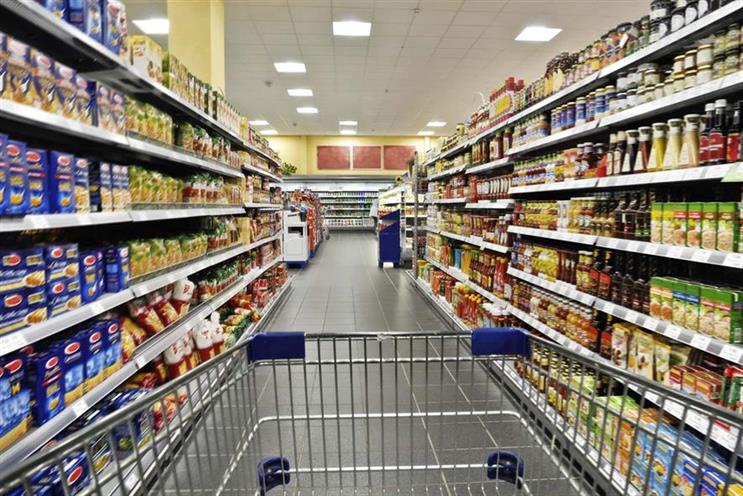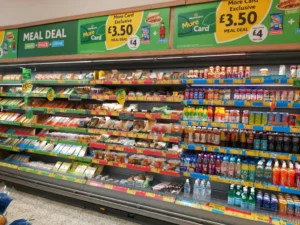Are UK Supermarkets Organic Food Truly Worth It?
What Does “Organic” Actually Mean?
Before we answer if it’s worth it, let’s define what you’re actually paying for.
In the UK, “organic” means:
-
No synthetic pesticides or fertilisers
-
No genetically modified organisms (GMOs)
-
Strict animal welfare rules
-
Transparent supply chain tracking
-
Independent certification
In short: it’s food that aims to be kinder to your body, animals, and the planet.
The Price Premium: How Much More Are You Paying?
Let’s talk numbers. On average:
-
Organic carrots: +45% more expensive
-
Organic chicken breast: +70–90%
-
Organic eggs: +35%
-
Organic milk: +30%
Even store-brand organics are often 25–50% more costly than their non-organic versions.
But is it just expensive branding, or is there real value behind the label?
1. Health: Does Organic Mean Healthier?
Less Chemical Residue
Studies show that organic produce has significantly lower pesticide residues. While UK pesticide use is regulated even in non-organic farming, small daily exposures may build up over time.
Nutritional Content
The difference in nutrients is small—but sometimes present. For example:
-
Organic milk may have more omega-3s
-
Organic veg may contain slightly more antioxidants
But here’s the truth: eating more vegetables, organic or not, will make a bigger difference to your health than choosing organic ones occasionally.
2. Taste: Can You Really Tell the Difference?
In blind taste tests, some people notice a difference—especially in fresh fruit, eggs, and dairy.
But taste depends on:
-
Freshness, not just production method
-
How far the food travelled
-
Storage conditions
So yes, organic can taste better—but not always. And it’s not guaranteed.
3. Environmental Impact: A Bigger Win for Organic
Here’s where organic shines:
-
Uses less energy-intensive fertilisers
-
Promotes biodiversity (especially pollinators like bees)
-
Focuses on soil health
-
Has lower levels of water pollution
According to the Soil Association, organic farms have 50% more wildlife and produce less greenhouse gas per acre.
If sustainability matters to you, organic is worth considering, especially for products like beef, dairy, and leafy veg.
4. Animal Welfare: One of the Strongest Points
UK animal welfare standards are already high—but organic rules go further:
-
More outdoor space for livestock
-
No routine antibiotics or growth hormones
-
Stricter transport and slaughter conditions
So if animal ethics matter to you, organic meat, milk, and eggs are absolutely worth it.
5. Food Miles & Local Sourcing
Not all organic food is local.
-
Some UK supermarkets import organic apples from New Zealand in winter
-
Organic asparagus in March often comes from Peru
-
Organic tomatoes may come from heated greenhouses in Spain
So: organic doesn’t always mean local or low-carbon. Check the origin before assuming it’s the greener choice.
Is It Worth It? Let’s Break It Down by Category
| Food Type | Worth Going Organic? | Why or Why Not |
|---|---|---|
| Leafy greens | ✅ Yes | High pesticide risk in non-organic |
| Berries & apples | ✅ Yes | Fragile, absorb chemicals easily |
| Bananas & oranges | ❌ Not really | Thick skins block most residue |
| Milk & dairy | ✅ Yes | Better omega-3s, no hormone concerns |
| Eggs & meat | ✅ Yes | Much higher animal welfare |
| Packaged snacks | ❌ No | Organic crisps are still crisps… |
| Bread & cereals | ⚠️ Sometimes | Worth it if you eat them daily |
Tips to Shop Smart Without Going Broke
-
Pick your battles: Focus on the high-impact items (leafy veg, dairy, meat)
-
Buy frozen organic: Cheaper, lasts longer, same nutrient profile
-
Shop Aldi and Lidl: Small organic range, but much cheaper
-
Use discount apps like Too Good To Go for leftover organic meals
-
Join loyalty schemes (e.g. Co-op Membership, MyWaitrose) for organic deals
-
Don’t assume “natural” = organic: Always check for certification
ALSO READ: The UK Supermarkets Best for Organic Food Ranked
What Shoppers Are Saying
“I buy organic milk, eggs, and bananas. The rest? Only if it’s on offer.” — Leanne, Manchester
“I noticed my skin reacted less when I switched to organic veg. Worth the extra quid.” — Sam, London
“Honestly? It’s not about health—it’s about the planet for me.” — Jas, Bristol
Final Verdict: Is It Worth It?
Organic food in UK supermarkets is worth it if:
-
You’re focused on reducing pesticide exposure
-
You care about animal welfare and sustainability
-
You shop selectively and not blindly
-
You’re okay paying a bit more for certain items
It’s not worth it if:
-
You’re buying organic snacks and ready meals just for the label
-
You think organic automatically means “healthy”
-
You can’t afford the price difference and it’s limiting your overall nutrition
FAQs
Is organic always non-GMO in the UK?
Yes. UK organic standards ban the use of genetically modified organisms.
Do UK supermarkets sell fake organic food?
Not typically. Certified organic products are independently verified. Just avoid vague terms like “natural” or “farm fresh.”
Which supermarkets are best for affordable organics?
Aldi and Lidl for budget basics. Co-op and Tesco for balance. Waitrose for variety (if you have the cash).




1 thought on “Are UK Supermarkets Organic Food Truly Worth It?”